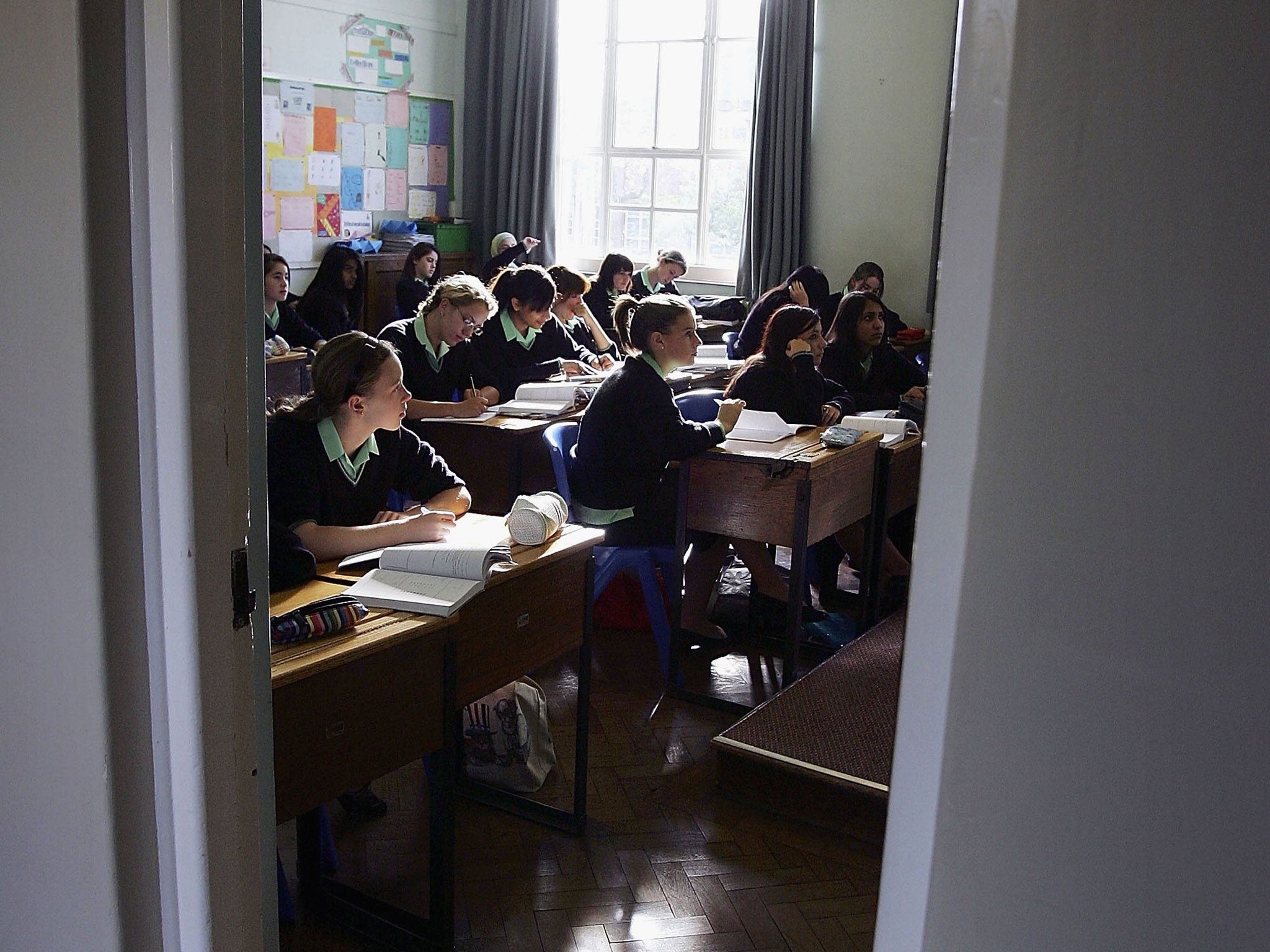Children with special needs are being turned away from 'underfunded' state schools, councils report
The number of pupils with additional educational needs or disabilities attending specialist schools has risen substantially in the past four years, putting cash-strapped local councils under increasing pressure, LGA warns

Your support helps us to tell the story
From reproductive rights to climate change to Big Tech, The Independent is on the ground when the story is developing. Whether it's investigating the financials of Elon Musk's pro-Trump PAC or producing our latest documentary, 'The A Word', which shines a light on the American women fighting for reproductive rights, we know how important it is to parse out the facts from the messaging.
At such a critical moment in US history, we need reporters on the ground. Your donation allows us to keep sending journalists to speak to both sides of the story.
The Independent is trusted by Americans across the entire political spectrum. And unlike many other quality news outlets, we choose not to lock Americans out of our reporting and analysis with paywalls. We believe quality journalism should be available to everyone, paid for by those who can afford it.
Your support makes all the difference.Children with special educational needs and disabilities are at risk of being turned away from mainstream schools due to a lack of funding, council leaders have warned.
Budget cuts along with rising demand is putting a strain on councils’ abilities to offer places to these pupils in need of extra help, according to the Local Government Association (LGA).
Analysis of government data shows the percentage of pupils with special educational needs and disabilities (SEND) attending a specialist school has risen in the past four years – from 5.6 per cent in 2012 to 8.5 per cent last year.
There has also been an increase in the proportions attending independent schools, something the LGA says is because it is becoming increasingly difficult to place these children in mainstream schools.
Funding dedicated for SEND children has also been frozen for several years, the association added, putting council budgets under increasing pressure at a time when there is already a squeeze on funding.
If local authorities do not receive enough government funding to cover high-cost special needs, they will not have the money to allocate extra cash to schools that take higher than average numbers of children with additional needs, the LGA said.
It adds that mainstream schools could find it difficult to take, or keep, SEND pupils if they cannot afford to subsidise their needs from their own budgets.
More than 1.2 million children in England were classed as having special educational needs last year – down from 1.3 million in 2015.
The figure has been contested, however, with research published by the GL Assessment group suggesting many pupils are being misdiagnosed as SEN as a result of pressure from pushy parents who want their children to receive extra help.
Richard Watts, chair of the LGA’s children and young people board, highlighted that demand within state schools for SEND provisions was under increasing pressure.
“There has been a historic underfunding of high needs funding and a significant increase in the number of pupils with special educational needs or disabilities in schools,” he said.
“The Government should provide additional funding to meet this need, otherwise councils may not be able to meet their statutory duties and children with high needs or disabilities could miss out on a mainstream education.
“Whilst the additional funding announced earlier in the year was a step in the right direction, it was never enough to meet the needs of the increasing number of SEND pupils.”
“Councils are doing all that they can to make sure children with SEND get the support and opportunities they need to flourish, but are experiencing increasing demand for all services.
Proposed changes to schools and high needs funding could also make this problem even worse, he added, taking away the freedom for councils to top up high needs funding from other budgets if necessary.
The warning comes the week after a Department for Education consultation on school funding closed.
A Department spokesperson said: “This Government is determined to build a country where everyone can fulfill their potential.
"This is backed by a £5.3bn investment in 2016/17 for children and young people with high needs, which is protected in real terms in this Parliament.
“We’ve also announced a £215 million fund for councils across the country to improve and create more special provision.
"This will help build new classrooms and improve facilities for pupils with special educational needs, so that no child is left behind.”
Subscribe to Independent Premium to bookmark this article
Want to bookmark your favourite articles and stories to read or reference later? Start your Independent Premium subscription today.
Join our commenting forum
Join thought-provoking conversations, follow other Independent readers and see their replies
Comments